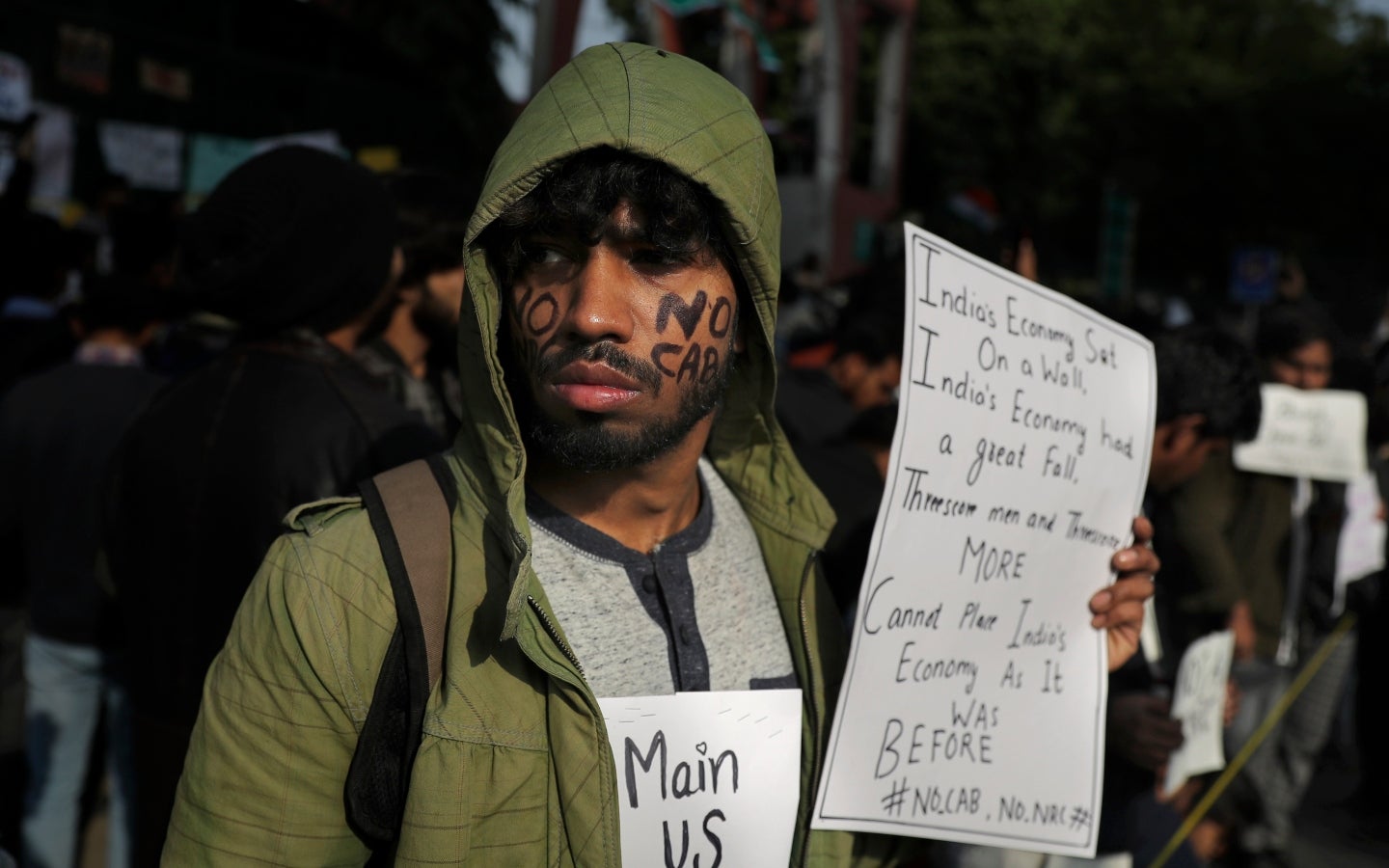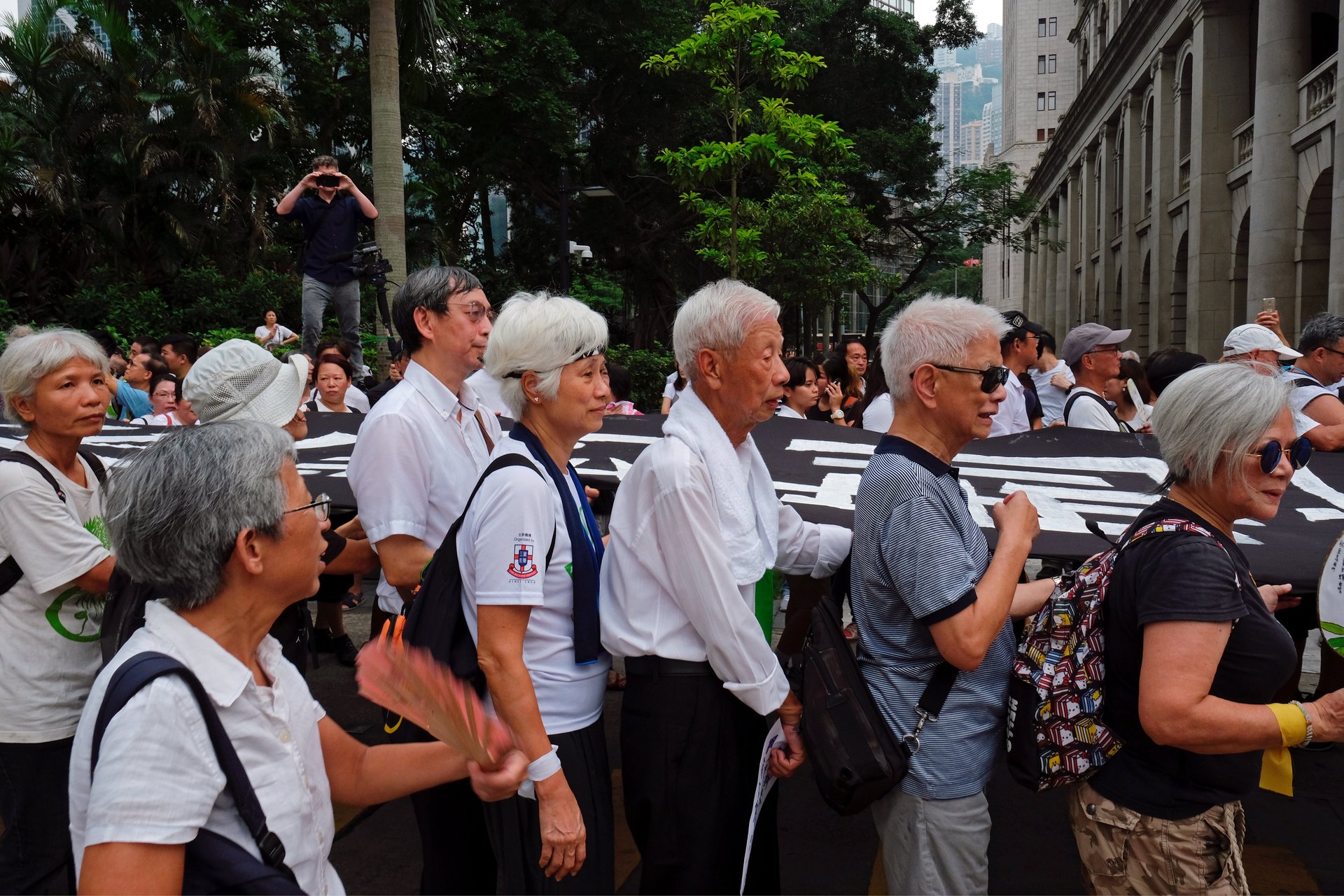What Indian parents can learn from Hong Kong’s “silver haired” protesters
The massive upheaval spearheaded by India’s young and restless now has put the spotlight, ironically, on protesters’ parents.


The massive upheaval spearheaded by India’s young and restless now has put the spotlight, ironically, on protesters’ parents.
Not surprising, given the amount and intensity of influence that parents and guardians of the country are expected to wield over their children and wards.
Yesterday (Dec. 18), the police chief of the largest Indian state, Uttar Pradesh, appealed to parents to “counsel” their “children” against participating in public marches against the Citizenship Amendment Act passed by India’s parliament a few days ago, viewed by many as unjust for changes that exclude Muslims.
The fact that the protesters, mostly university students, are adults seems lost on the official.
In Bengaluru, the IT capital of India, the city police chief evoked students’ financial obligation towards their parents. “Parents have spent money to send them here to study and not engage in protests,” Bengaluru police commissioner Bhaskar Rao told The News Minute website.
Earlier, on Dec. 17, a few Twitter users created quite a flutter when they posted screenshots of what they said was an Instagram story posted by Sana Ganguly, the daughter of former Indian cricket team captain Saurav Ganguly.
The 18-year-old shared an excerpt from late author Khushwant Singh’s The End of India on the picture-sharing platform, ostensibly to voice her dissent against the violent police action against students of Delhi’s Jamia Millia Islamia university a few days ago.
One of the sentences from the excerpt read: “Every fascist regime needs communities and groups it can demonise in order to thrive. It starts with one group or two. But it never ends there.”
While the Instagram story disappeared after three hours in keeping with the platform feature, Sana’s public stand seemed to have provoked a reaction from her father. Cricket star Sourav Ganguly, now the chief of the Board for Control of Cricket in India, denied the authenticity of her post outright but was promptly proven wrong.
Even if out of concern for her privacy and safety, the fact that he chose to undercut his adult daughter’s public stand on a major national issue speaks volumes about parental norms in India.
For a different approach, Indian parents (and grandparents) might want to look at Hong Kong’s “silver hair” protesters.

From the start, older Hong Kongers have publicly expressed support for Hong Kong’s youth-driven protest movement, as well as coming out to protests themselves. In July, Hong Kongers organised a “silver hair” march, just weeks after young people had stormed the city’s legislative council for a symbolic sitting in the chamber.
Some “silver hairs” have gone further to support the young “frontline” protesters, forming a special corps to try to remonstrate with police when they appear set to make a physically aggressive arrest. It’s also been a common sight to see older Hong Kongers scolding the police for the way they’ve policed the protests—setting off tear gas even during still peaceful marches, albeit without the necessary police permits, as well as in metro stations and near rest homes for the elderly.
Granted, not all Hong Kong parents support the protest movement—at pro-police rallies, it’s common to see an older demographic, and some people have moved out of their homes (or been thrown out) as months of protests uncovered deep political divisions within families. The protests were initially sparked by anger over a controversial extradition bill but became far broader as they went on.
Nevertheless, at a time the city needed it most, the city has abounded with moments of political solidarity across the generations, with many older Hong Kongers saying that they must support the younger ones because they are fighting for “the future of Hong Kong.”
What would it take for Indian parents to do the same?
We welcome your comments at [email protected].